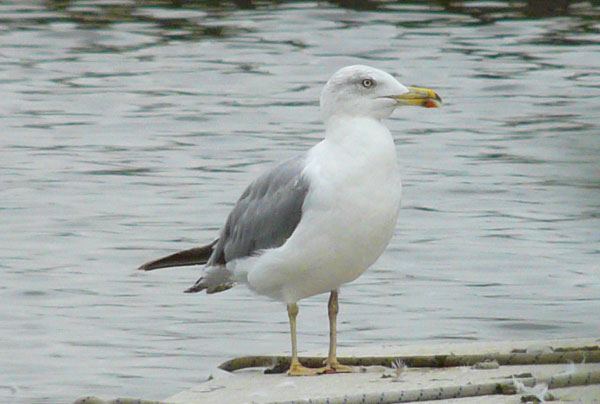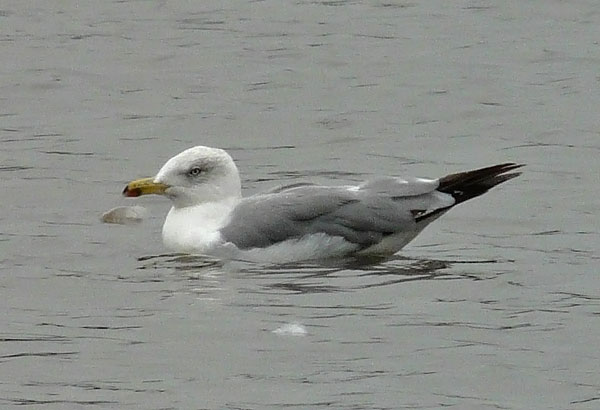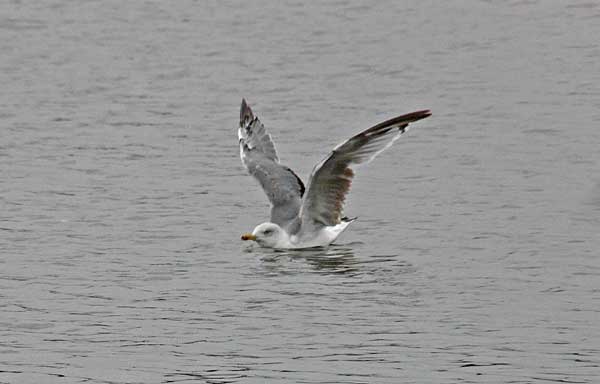Yellow-legged Gull Larus michahellis3cy, August 13th 2010, Warwickshire |



© A. R. Dean
Images 11, 12, & 13. 2S >> 3W (3cy), mid-August 2010
(Image 1 in the series is at 20/01/2010).
Tertials and coverts now largely replaced with smooth grey, adult-like feathers and at rest appearance generally quite like adult. Spread wing shows that primaries p1 to p6 have been replaced with adult-like feathers, p7 and p8 have been dropped, while the two outermost primaries have yet to be replaced. There are residual signs of immaturity (dark feathering) in secondaries, tip of tail and in primary coverts. Note also that some fine head streaking has been acquired and that the orbital ring to the eye is less intensely coloured, both associated with acquisition of winter plumage. In michahellis the head-streaking is typically fine and soon disappears as a result of wear, leaving the head relatively clean and white compared with e.g. Herring Gull during the period from mid-September to mid-December (after which HG can also become quite white-headed).
|
|
|
|
Home |
Mediterranean
| Laughing |
Franklin's |
Little |
Sabine's |
Bonaparte's |
Black-headed |
Ring-billed | Common |
Lesser Black-backed | |